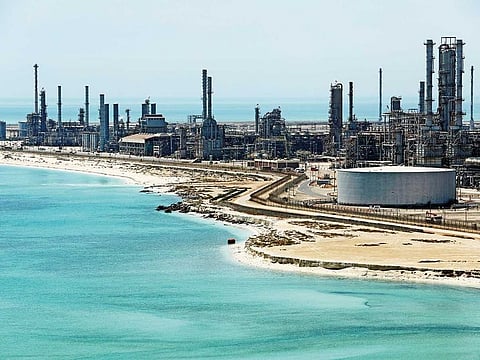Saudi Aramco keeps world guessing on second listing
But Saudi giant’s CEO reiterates chances of IPO happening ‘very soon’

Abu Dhabi
Saudi Aramco is primed to float on international markets to complement a planned domestic initial public offering (IPO), which has been selected as its primary listing.
An IPO of Saudi Aramco would happen “very soon”, Amin Nasser, its CEO, said on Tuesday, adding that the ultimate decision on the venue and timing of the flotation rested with the Saudi government. “We have always said that Aramco is ready whenever the shareholder makes a decision to list ... so we are prepared, that’s the bottom-line.
“It is going to be the primary listing, to list locally, but we are ready also for listing outside in other jurisdictions.”
The IPO is planned for 2020-21, but could happen as early as by the end of this year.
Aramco’s board last month determined that listing in New York would carry too many legal risks, sources told Reuters. The exchange was favoured by Crown Prince Mohammed bin Salman, who hopes Aramco will be valued at $2 trillion, before plans for the IPO were put on hold last year. Alongside New York, London, Hong Kong and Tokyo have been keen to woo Saudi officials to trade shares in Aramco.
Emphasis on clean
Nasser stressed the need of cleaner oil and gas to address climate challenges and called on the industry to share the responsibility to lower its carbon footprint. He told the World Energy Congress that oil and gas will remain at the heart of the global energy mix for decades to come and that Aramco was also taking steps to meet the climate challenges.
“We have heard loud and clear the call from stakeholders and society at large for cleaner energy,” Nasser said. “The world faces an incredible climate challenge and we need a bold response to match.”
Climate change and new green technologies are putting some investors, particularly in Europe and the US, off the oil and gas sector. Nasser criticised government policies that do not appear to consider the long-term nature of the oil and gas business.
“We have already seen the impact of what I call a “crisis of perception” on long-term investment, and if it continues supply shortfalls will follow as night follows day,” Nasser said. “That would hurt the competitiveness of national economies, threaten their energy security, and potentially create social disruption — by making energy less affordable. The world can no longer afford such policy miscalculations.”


